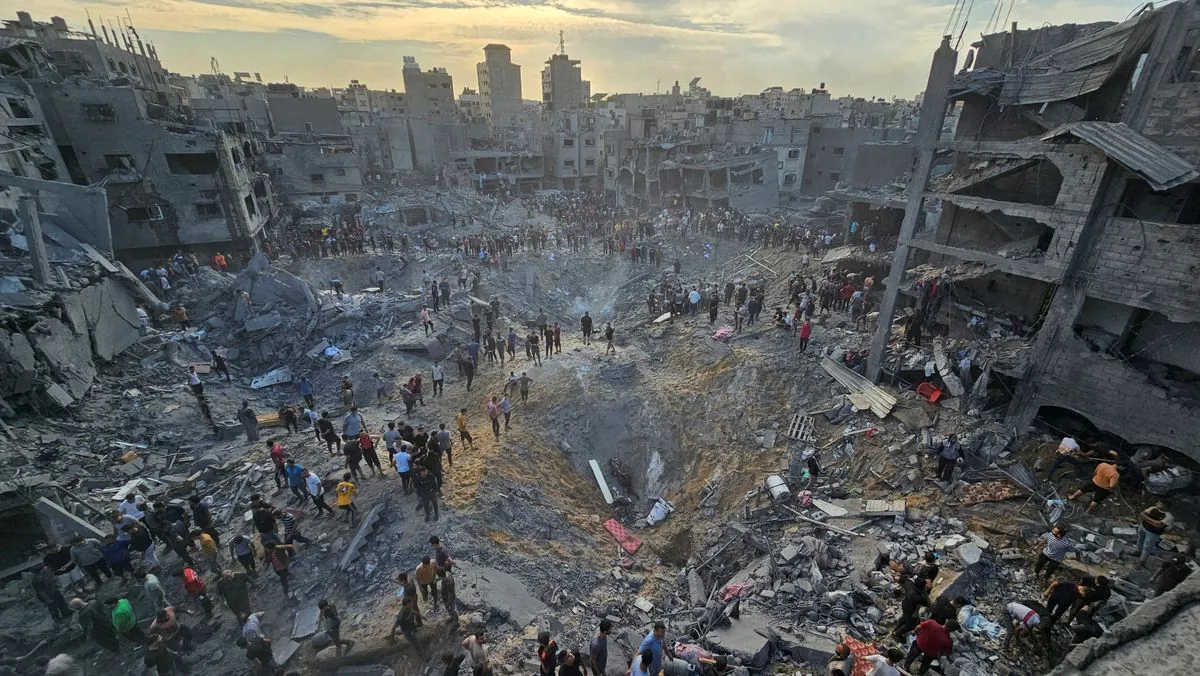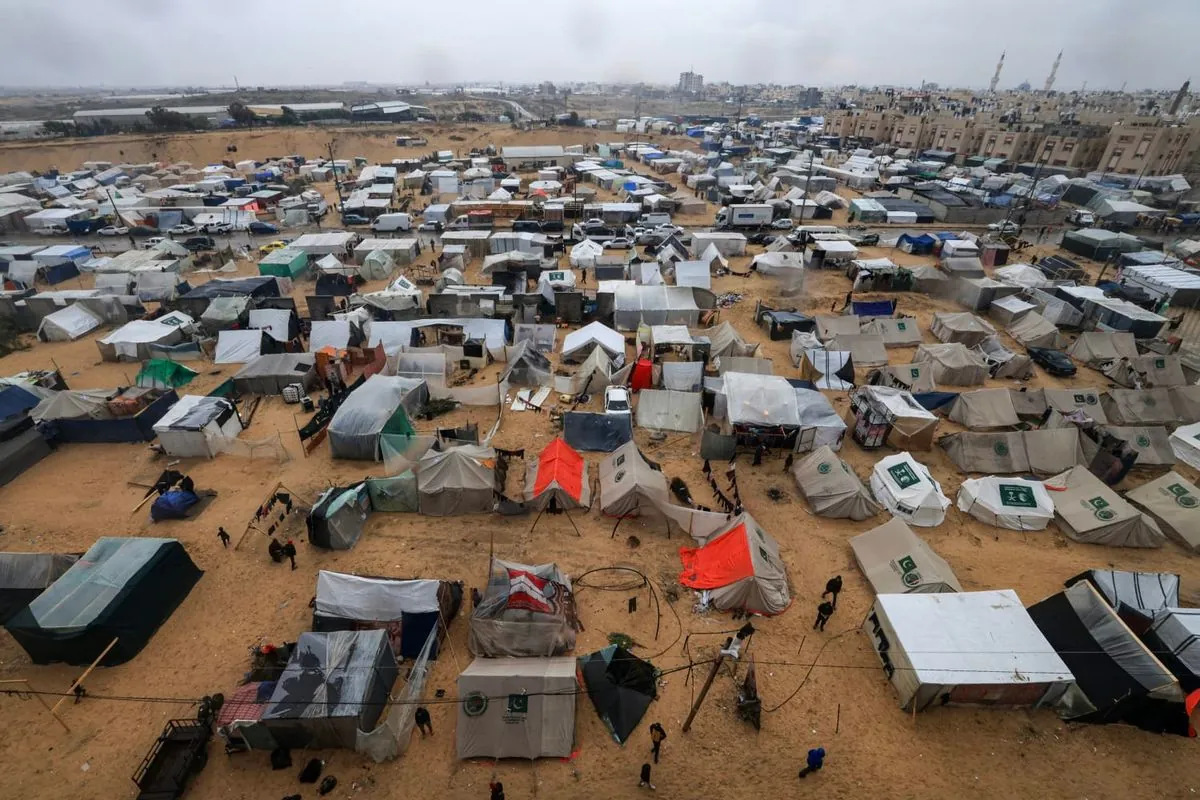Gaza's Shrinking Safe Havens: 250,000+ Displaced Amid Ongoing Conflict
Over 250,000 Palestinians in Gaza displaced in August due to Israeli evacuation orders. Humanitarian zone shrinks, leaving civilians struggling to find basic necessities amidst repeated displacements.

In the past month, Israeli military evacuation orders have resulted in the displacement of more than 250,000 Palestinians in Gaza, according to United Nations reports. This ongoing crisis has significantly reduced the size of the enclave's humanitarian zone, exacerbating the already dire situation for civilians seeking food, water, and shelter.
The conflict, which began nearly a year ago, has seen Gaza's 2.2 million residents forced to relocate multiple times as Israeli forces continue their operations against Hamas militants. The evacuation orders, often overlapping and confusing, have compressed the population into increasingly smaller areas of the devastated Strip.
Avichay Adraee, the Israeli military's Arabic spokesperson, stated that some Palestinians evacuated from areas in Deir al-Balah and Khan Younis would be allowed to return. However, the constant flux of evacuation orders has left many Gazans in a state of perpetual uncertainty.

The Mawasi area, designated by Israel as a humanitarian zone, has become a focal point for displaced Palestinians. However, aid groups and those seeking refuge report severe overcrowding and inadequate services. Georgios Petropoulos, head of the U.N. humanitarian agency's Gaza office, described the situation bluntly: "The IDF so-called humanitarian zone is no longer a viable place for us to render aid. The system is dead."
The impact of these displacements on Gaza's residents is profound. Adli Abu Taha, a 45-year-old journalist who has been displaced five times, shared his experience: "Every time, we feel that the world has turned upside down on our heads. The heat, the physical exhaustion, the loss of security, the financial costs... There are no empty places. There is no water, no food."
The Israel Defense Forces (IDF) maintains that its evacuation orders are designed to protect civilians from combat areas. However, Palestinian families report difficulties in accessing and interpreting the IDF's evacuation maps due to unstable electricity and communication networks.
"The evacuation orders, including those within the humanitarian zone, are designed to mitigate harm to the civilian population and keep civilians away from areas of combat."
The ongoing conflict has had devastating consequences. The Hamas-led assault on October 7, 2023, resulted in approximately 1,200 Israeli casualties and 251 hostages taken. In response, Israel's military campaign has led to over 40,000 Palestinian deaths, according to the Gaza Health Ministry.
The humanitarian crisis in Gaza is further compounded by pre-existing challenges. The Strip is one of the most densely populated areas globally, with about 5,700 people per square kilometer. Over 95% of Gaza's groundwater is undrinkable without treatment, and the unemployment rate exceeds 40%. The population is predominantly young, with about 50% under the age of 18.
As the conflict continues, the future remains uncertain for Gaza's residents. The repeated displacements, shrinking safe zones, and dwindling resources paint a grim picture of the ongoing humanitarian crisis in one of the world's most troubled regions.


































